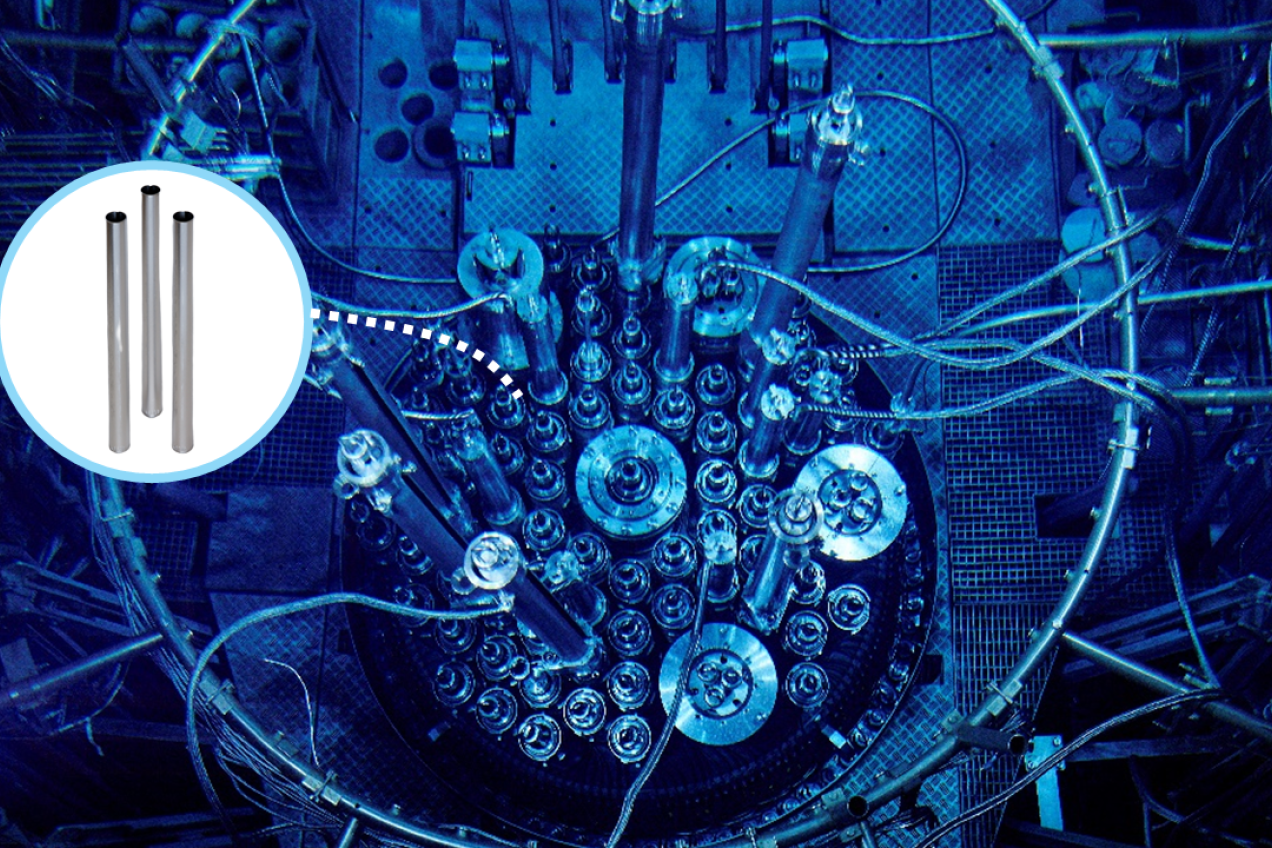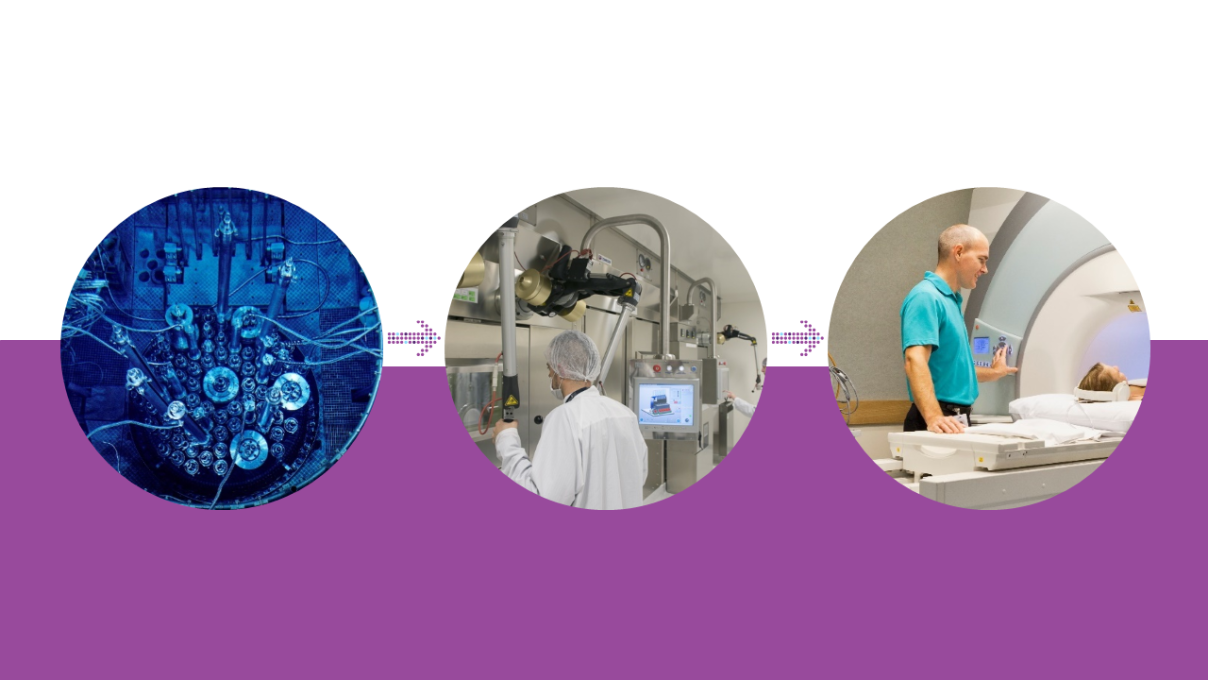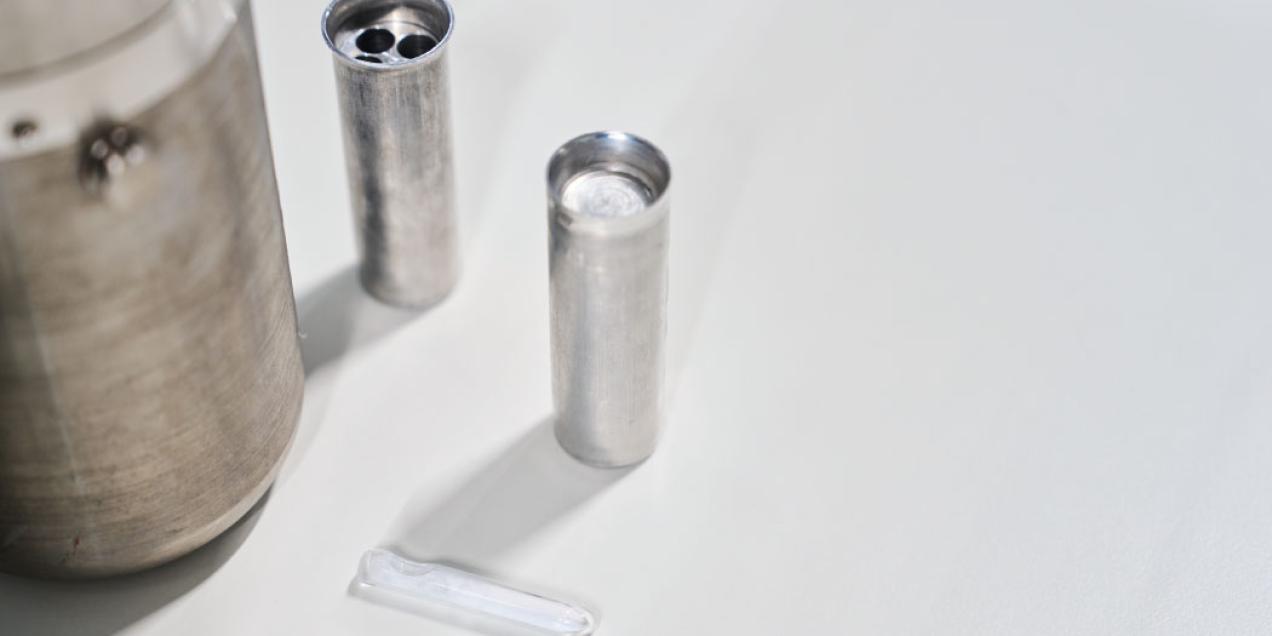Only low-enriched uranium left as base material for production of medical radioisotopes
SCK CEN lives up to promises of international summit in The Hague
The medical sector has always been able to rely on the nuclear research centre SCK CEN. It produces sorely needed medical radioisotopes in its BR2 research reactor, including molybdenum-99 and iodine-131. The former can be used to detect cancer and cardiovascular diseases. The latter, radioactive iodine, is in turn used to fight thyroid cancer. Both radioisotopes are created by irradiating uranium targets – tubes about 16 centimetres long. After 51 years, SCK CEN is switching completely to low-enriched uranium as base material. "Nothing changes for the patient or doctor, but it does for the world," said Steven Van Dyck, BR2 director. And he means that from a non-proliferation perspective. Since highly enriched uranium is no longer used in the production of these medical radioisotopes, that nips a potential spread of it in the bud.

The 'European Week Against Cancer’ takes place every year, from 25 to 31 May. That week draws attention to the European ‘beating cancer plan’ and everyone who plays a role in accelerating its implementation. With that plan, Europe aims to reverse the rise of cancer. It therefore addresses all aspects of cancer: from prevention and diagnosis to new treatments and drugs. #EWAC also addresses the topic 'early detection'.
"Early detection of cancer means a great deal of difference. The earlier cancer is detected, the more likely it can be treated. We are proud to play a vital role worldwide with our BR2 research reactor," said Steven Van Dyck, BR2 director at the nuclear research centre SCK CEN. The Belgian research reactor ensures the global supply of medical isotopes, along with only five other reactors. These are radioactive substances that are much needed in the detection and treatment of cancer and cardiovascular diseases. It also allows doctors to closely monitor whether treatment is succeeding, so they can determine the optimal treatment. In 2022, as many as 11,320,000 diagnoses and treatments were performed thanks to Belgian production.

Low-enriched uranium as base material
“To obtain a radioisotope, we irradiate so-called 'targets' - raw base material - in our BR2 research reactor. After five to six days of irradiation, these targets are sent to a pharmaceutical company which converts them into medical radioisotopes and sends them to hospitals worldwide,” explains Steven Van Dyck. Molybdenum-99 decays into technetium-99m, which is the world's most widely used medical radioisotope for diagnosis. Iodine-131 is irreplaceable in the fight against thyroid cancer. The targets to produce those two radioisotopes are made of uranium.
In 1972, SCK CEN produced its first charge of molybdenum-99, starting from highly enriched uranium as a feedstock. This material was no longer used in the reactor cycle that has just ended. "We have switched completely to low-enriched uranium for the production of these medical radioisotopes," said Steven Van Dyck. “Our production capacity remains the same. For the patient or doctor, nothing changes; for the world, everything changes.” And he means that from a non-proliferation point of view. Banning highly enriched uranium removes the risk of its potential proliferation and misuse.
International summit in The Hague
Thanks to this conversion, SCK CEN is implementing, in a second way, the agreements made at the 2014 Hague International Summit. Back then, more than 50 world leaders met there, including then-President Barack Obama and Chancellor Angela Merkel, to reach an international agreement on nuclear safety. That agreement read as follows: "The use of highly enriched uranium should be phased out.” Earlier this year, SCK CEN announced its plans to also replace the nuclear fuel - the 'fuel' of the BR2 research reactor - with a low-enriched variant. In March 2023, the US Department of Energy and U.S. Ambassador to Belgium Michael M. Adler have praised SCK CEN for an important milestone in the reactor conversion. It made the news earlier this year.

